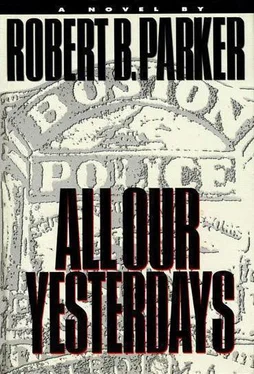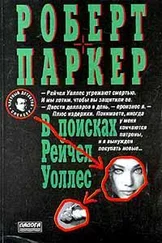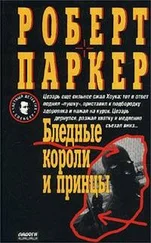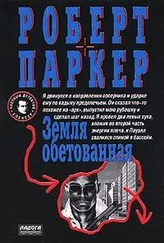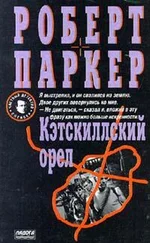Conn shrugged a little. And smiled, letting the glint of laughter show in his eyes.
“Well, maybe in Boston,” he said. And they both laughed. “I’m a bachelor, I know, with little experience, and it makes me foolish; but I guess that it scares me when you don’t show your feelings.”
She was silent as she thought about this. He waited calmly. She frowned, and he admired how the little cleft appeared between her eyebrows.
“We do kiss,” she said.
“Like sister and brother,” Conn said.
“Mother of mercy, Conn. I’ve not known you more than a month. I try to be proper.”
“Of course you do,” Conn said. “And you should. But my heart isn’t as wise as my head, and you’re very beautiful.”
She smiled then, and blushed again, and put her hand once more on top of his.
“I do like you, Conn, very much. And I have strong feelings too, God help me. But I don’t wish to give in to them. I don’t wish to be sinful.”
Conn put his other hand on top of hers, and stroked it gently.
“Of course not,” Conn said. His smile was affectionate. “I’m just a foolish, fearful bachelor. Don’t be paying me any mind.”
“You’re not foolish, Conn. You’re very dear,” Mellen said.
And Conn smiled at her some more.
They went to Braves Field on a Saturday afternoon. They rode the streetcar out Commonwealth Avenue to Gaffney Street and walked down to the field with its very un-Boston stucco façade and serial archways. Fenway Park, where the Red Sox played, was appropriately New England with an ornamented brick front on Jersey Street. From the outside, Braves Field looked Californian to Conn, though he’d never been to California.
The Dodgers were in town and the crowd on a bright, hot August afternoon was large. Mellen held Conn’s arm as they pushed through the jam around the entry gates to the press entrance. A uniformed usher winked at Conn, tipped his hat to Mellen, and waved them on through.
“You don’t have to pay?” Mellen said.
Conn shook his head.
“Is it because you are a policeman?”
“I did a favor,” Conn said as they walked to their seats.
“Well, you must have done a lot of them, because everyone seems to know you.”
“I try to be kind,” Conn said.
“You’re softhearted like my father,” Mellen said.
“Not a bad fault,” Conn said gently.
“Not a fault at all,” Mellen said.
They had box seats along the first-base line. They had peanuts and scorecards. Conn tilted his straw boater forward to shield his eyes. Mellen wore a white visor, to keep the sun off her face.
“This is not a tennis match,” Conn said with a smile.
Mellen laughed.
“I burn so easily,” she said. “And I get all freckly even if I don’t burn.”
“That’s not freckles,” Conn said. “That’s an Irish tan.” He patted her knee gently.
Conn had never played baseball, and had never fully come to like it in nine years, but he wanted to distance his Irish past and few things were more American. He knew all the teams and players, and who hit well and how the game was played. Mellen had never been to a game.
“Are these good teams, Conn?”
“Dodgers are so-so,” Conn said. “The Braves are bad.”
“Who’s that little player, there?” Mellen said.
“Rabbit Maranville,” Conn said. “He’s playing shortstop.”
“He looks like a little boy.”
The pitchers were Socks Seibold for the Braves and Dazzy Vance for the Dodgers. There were no runs until the sixth inning, when Babe Herman hit a home run into the jury box in right field and the Dodgers won, one to nothing.
They rode the streetcar back through Kenmore Square where it dipped underground and rumbled under Commonwealth Avenue and parts of the Boston Common. It stopped at Park Street station, and they got off.
They came out of the underground into the glaring late afternoon sun, and walked, holding hands, down across the Common toward the Public Garden. To their right the golden dome of the State House gleamed hotly in the August heat.
“When’s the last time you rode a swan boat?” Conn said.
“I don’t think I ever have,” Mellen said. There was a fine sheen of sweat on her forehead, and her face was red. Conn too felt the sweat under his shirt, and his gun, worn back of his right hip, under his seersucker coat, felt heavy.
“Well, we’ll do it,” Conn said. “And then maybe we’ll stop at Bailey’s for a soda.”
They glided slowly around the small lagoon on the pontooned pedal boats with a realistic oversized swan concealing the pedal apparatus. The young man pedaling the boats looked as if he were riding the swan. There were several other passengers, mostly children. Everyone fed the ducks who followed the swan boats around the lagoon like tugs escorting a transatlantic liner.
The children tried to fool the ducks with peanut shells, but the ducks paid no attention.
“How do they know the difference?” Mellen said.
“Ducks are smarter than they look,” Conn said.
“That’s good,” Mellen said, and leaned her head against Conn’s shoulder.
The sun was still bright but had moved farther west and the shadow of Beacon Hill began to move shade across the Beacon Street side of the Public Garden. When they left the swan boats they walked to a bench in the shade and sat. Conn put his arm around Mellen’s shoulder.
“What is it you’ll be wanting to do now, my fair colleen?” Conn said.
“You did promise me a soda at Bailey’s.”
“I did.”
“Well, we could go up there and do that, and then we could go to my house.”
“And sit on the piazza with your parents?” Conn said. “And rock, and say, ‘Bejaysus it’s hot’?”
“My father would never let you use the Lord’s name like that in his house.”
“Not even on the piazza, when, bejaysus, it is hot?”
Mellen rubbed her cheek against Conn’s shoulder.
“Not even then,” she said. “But it’s all right. They’re not home. They went up to Nahant for the weekend.”
“And left you home alone?”
“My sister and her husband live downstairs. Besides, I wouldn’t go.”
“Why not?”
“You know why not,” Mellen said. “I wanted to see you.”
“Well, you got your wish,” Conn said. “And what’ll we do at your house? Just you and I alone? With your sister downstairs?”
“We’ll sit on the piazza,” Mellen said, “and rock and say, ‘Bejaysus it’s hot.’”
Mellen began to giggle, and Conn laughed.
“Well,” Conn said. “Let’s start with the soda.”
And they stood and walked hand in hand back up across the Common toward Tremont Street.
Mellen lived upstairs in a three decker on K Street in South Boston which her father owned. It had gray clapboard siding, and an open porch off the back of each of the first two floors. Mellen’s sister lived with her husband and small child on the first floor. Mellen, her mother, and her father lived on the second floor. The third floor was unfinished, except for Mellen’s bedroom.
It was a narrow house, two rooms wide and three rooms deep. There was a small den. The dining room was to the right. Off the dining room was a front parlor with an upright piano in it. The parlor was never used. The French doors connecting it to the dining room were always closed, and in the winter it was left unheated.
The kitchen, with its big cast-iron stove, was the heart of the house. All the rooms connected to it except the parlor. Mellen’s parents slept in a bedroom off the back corner of the kitchen. There was a pantry with an icebox and a soapstone sink and next to it the bathroom. There was a huge table in the kitchen covered in oilcloth, surrounded by chairs. There was a big leather rocker, a daybed, and a broad expanse of linoleum-covered floor. The walls were half wainscoted in narrow pine boards, installed vertically, and stained a dark walnut. Above the daybed was a picture of Jesus holding his robe open to reveal his bright red heart. The room smelled of kerosene, and when the stove was in use there would be a periodic burp from the kerosene bottle as it fed fuel to the stove.
Читать дальше
